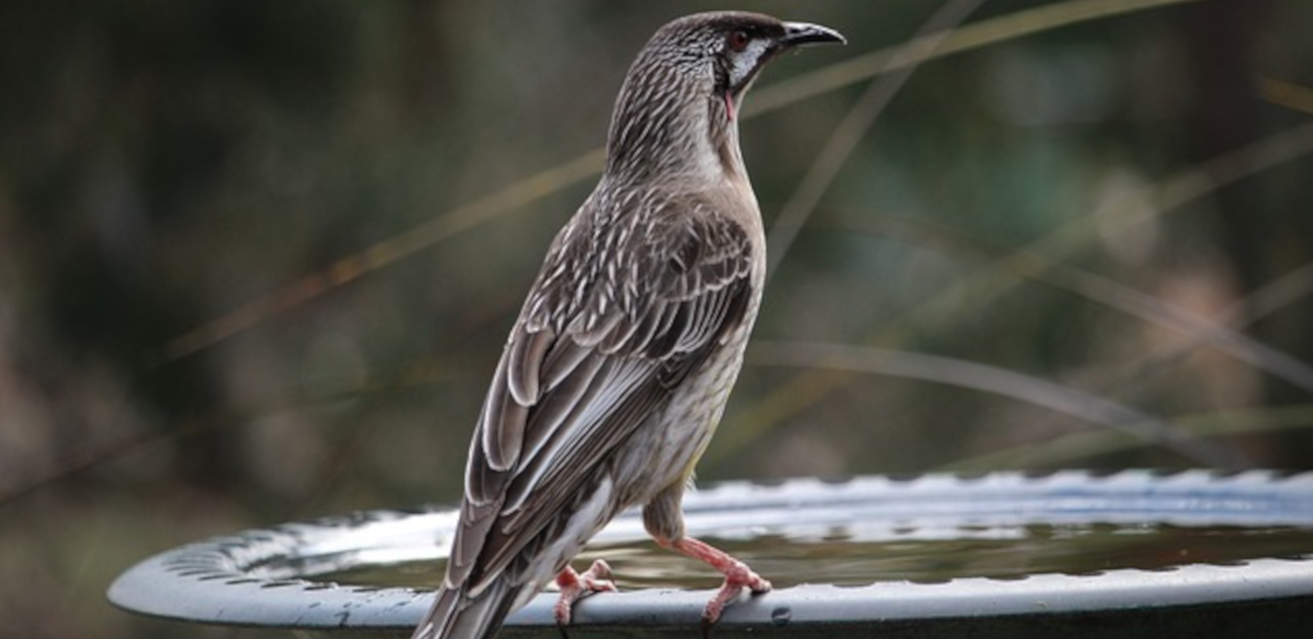Water for wildlife

This summer has been a pretty wet one thanks to the end of the drought and the onset of La Niña. That said, we’ve had a couple of extremely hot days, which put our local birds, reptiles and marsupials living in the suburbs under extra pressure.
Before widespread deforestation, wildlife had greater range to roam and find food and water. Now there are many more challenges for them: feral predators, humans, fences, concrete and cars just some of them. Of course, increasingly extreme weather events due to climate change are a big challenge also.
You can help our native wildlife by simply putting out some water for them. Here are some tips:
- Put several containers of water out around your garden.
- In summer, ideally place the containers in shady locations, and refill with cool, clean water.
- They don’t need to be specially made bird baths. Terracotta pot saucers work really well. You can also go to an op shop and buy an old pottery bowl or similar (be careful it’s not going to get too slippery though).
- Choose containers of a couple of different sizes and depths.
- Make sure you provide a few sticks or large stones in the water so that smaller animals that might fall in can get out, and birds have something to perch on while bathing.
- Keep water for wildlife out of reach of cats and dogs wherever possible. Elevating bird baths at least a metre off the ground can help.
- Place some low shallow dishes on the ground for blue tongues lizards, skinks and other ground-dwellers such as echidnas (if you’re lucky enough to have them visit your place!)
Place some higher up (but still under or next to vegetation) for small birds such as wrens and honeyeaters. Placing shallow bowls of water (approx. 5cm deep) under branches or bushes is ideal for them to drink and bathe in. - Bigger or braver birds such as lorikeets, noisy miners, kookaburras and magpies will come to more open bird baths and may push out the smaller birds – try and have a backup water source for smaller birds.
- Don’t forget about making some water accessible to possums and sugar gliders.
- Make sure you regularly clean water containers to reduce the risk of mosquito wrigglers maturing or diseases being passed around.
Whether you’ve already got them visiting your backyard, or you’d like to encourage more birds and wildlife to stop by, providing fresh water is a great way to support them.
Written by Jen Willis
